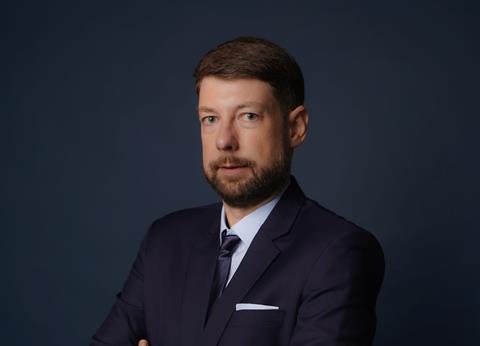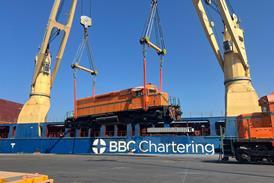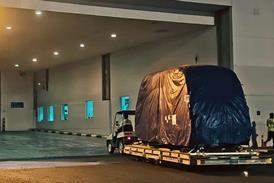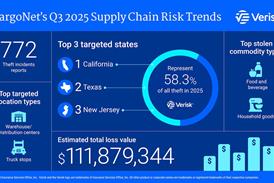At the start of 2025, FLS Group drew industry attention with a bold move into the Philippines, forming a strategic partnership with local specialist AC Logistics and acquiring a stake in Antrak Logistics Philippines. Shortly thereafter, it announced the acquisition of a majority share in Italian logistics provider LogiProject. David Kershaw spoke with Torbjörn Larisch, ceo at FLS Group, to explore the rationale behind these developments and what lies ahead.

FLS Group isn’t aiming to become the next sprawling logistics conglomerate. Instead of pursuing growth for its own sake, the company is focused on remaining agile, responsive, and closely aligned with its clients’ needs. Its core strengths lie in Asia, Southeast Asia, and Australia – regions where it has built a solid foundation. Recent moves to consolidate its presence in the Philippines and expand into Europe mark the next phase of a targeted, strategic growth journey.
Larisch highlighted several reasons behind its expansion programme into the Philippines, but two key factors stood out. First, it completed the company’s Southeast Asian footprint, having already built strong operations in Thailand, Vietnam, Singapore, Indonesia, and Malaysia. “The Philippines was the last major market in the region where we weren’t yet present, “Larisch explained.
“Joining forces with respected players like Antrak Philippines and AC Logistics puts us on equal footing. With the momentum we’ve created and the reputation we’ve built across the region over 32 years, this was a natural next step.”
Secondly, he said the Philippines represents a market rich with opportunity. With a population of over 116 million spread across more than 7,600 islands, the demand for logistics services is evident – ranging from consumer goods and food to construction materials and industrial cargo. Coupled with a fast-growing economy and an increasingly dynamic logistics landscape, the government’s support for green infrastructure and clean energy development makes it an especially attractive environment for FLS Group, whose project logistics expertise is well aligned with these national priorities.
Acquiring a stake in Antrak Philippines gives an instant advantage, Larisch continued, bringing a solid reputation, over 100 skilled staff and an established customer base. “Rebranding as FLS Philippines meant we could start delivering results immediately, no delays, no growing pains. Then, partnering with AC Logistics, part of the highly respected Ayala Corporation, amplified our impact. Project logistics is our strength globally, especially in Southeast Asia, and this joint venture lets us bring that expertise to the Philippines. It’s a win-win: AC Logistics gains capability, and we gain scale.”
Rising visibility
With FLS Group’s recent expansion, rising visibility through its online magazine and presence at industry events, there has been increasing interest from potential partners. “While we continue to proactively pursue strategic markets, what’s even more powerful is that companies are now approaching us,” Larisch noted. “They see the strength of our growing network, the scale and synergies it brings, and they want to be part of it. They recognise that together, we don’t just grow – we help keep the world moving better. To me, that’s one of the clearest and most exciting signals that we’re heading in the right direction.”
The acquisition of Italy’s LogiProject in February 2025 reflects FLS Group’s strategy to deepen relationships with European engineering, procurement and construction (EPC) contractors. With northern Italy home to many globally active EPCs and engineering firms, the rebranding of LogiProject as FLS Italy gives the company a strong foothold in a strategically important market – particularly for clients in the energy and industrial sectors.
Integrating its European and Asian activities is now a strategic priority. “LogiProject’s team brings technical precision and a strong European client base, while our hubs (Southeast Asia, North America, and Australia) offer scale and agility in sourcing and transporting heavy lift and project cargo,” Larisch said. “Our regional offices can streamline procurement and shipping [for cargoes originating in Asia], while FLS Italy ensures smooth delivery and installation in Europe. The addition of a new Milan office further strengthens this connectivity, ensuring we maintain our high-touch service standard.”
Market demands
FLS Group is focused on delivering its expertise across key industry verticals, with strong and sustained demand for project cargo logistics in both the Philippines and Europe – driven primarily by the global energy transition and growing infrastructure needs.
Citing the Philippines, Larisch noted that the government has halted development of new coal-fired power plants, creating momentum around renewables with even offshore wind energy being discussed. “That means more work moving big equipment. Plus, mining, a big part of the economy, keeps us busy too,” he explained.
“In Italy and the broader European market, the drivers are slightly different but equally compelling. Many of the Italian EPCs and industrial players we work with are executing global projects. They need reliable logistics partners who can connect Europe with Asia, the Americas, and Australia. That full sourcing-to-delivery capability is exactly what EPC players need.”
Further acquisitions are under consideration but the company remains highly selective. “If an opportunity fits our vision, adds real value, or strengthens our position in a key market, we’ll look at it,” Larisch explained. “Growth is important, but sustainable growth is even more critical. Right now, our focus is on consolidation. We’ve grown fast, so we’re making sure new teams and offices are fully integrated. At the same time, we’re also building global support functions to ensure we keep things running smoothly as we scale.”

Sustainable logistics is also a big part of how the company plans to grow. For instance, the company acquired Thailand’s largest 100 percent EV transport provider ITL and rolled out a charging station network together with Banpu NEXT. “We hope to grow our fleet to 100 fully electric trucks by the end of this year. Businesses are already leveraging our platform to optimise fleet efficiency while meeting their own sustainability goals,” Larisch noted.
With so much geopolitical upheaval presently, risk management is at the forefront of the sector’s thinking. The steps taken by FLS Group should help it ride out the storms, according to Larisch. “Business for FLS Group is solid right now. We’ve worked hard to diversify over the years, moving beyond just projects into logistics, warehousing, and trading. That interconnected supply chain ecosystem makes us resilient against ups and downs. Asia, Southeast Asia and Australia are our strong spots, and the fundamentals there are still looking good. So, despite the global noise, I’m optimistic we’ll keep moving forward. But like everyone, we’re watching the geopolitical landscape closely.”
The war in Ukraine, maritime threats and shifting US trade policies pose various risks to global logistics, he cautioned, but “we’ve built a project-based model that reduces dependency on any one market or industry. This structure enables faster decision-making and greater adaptability. Our strategy boils down to staying agile and putting clients first. We don’t try to predict every twist. Nobody can. Instead, we advise clients on flexible sourcing options and new trade routes to keep their supply chains moving.”
















